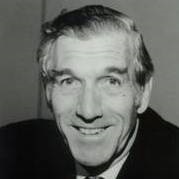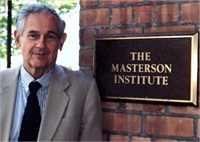EP95 Invited Address 08a - Insight May Cause Blindness - Paul Watzlawick, PhD
- Average Rating:
- Not yet rated
- Topic Areas:
- Invited Addresses | Psychotherapy | Therapist Development
- Categories:
- Evolution of Psychotherapy | Evolution of Psychotherapy 1995 | Pioneers in Couples and Family Therapy
- Faculty:
- Paul Watzlawick, PhD | James F. Masterson, MD
- Duration:
- 1 Hour 28 Minutes
- Format:
- Audio Only
- Original Program Date:
- Dec 16, 1995
- License:
- Never Expires.
Description
Description: Watzlawick challenges the assumption that insight into the past is the key to change. He explores how insight can sometimes reinforce dysfunction rather than resolve it. Drawing from Ericksonian methods and constructivist theory, he presents alternatives such as reframing, behavior prescriptions, and planned chance events. The address offers a compelling look at how therapists can shift client realities by speaking their language and disrupting unhelpful patterns in the present.
Syllabus Description: The traditional assumption that only insight into the causes in the past can bring about a change in the present makes us blind for what Alexander & French called "the corrective emotional experience," i.e., chance events in the present that may lead to almost immediate solutions. A great number of Erickson's surprising results could be considered the outcome of "planned chance events," often in the form of behavior prescriptions similar to interventions in hypnotherapy (e.g., "speaking the clients's language," prescribing resistance, the use of reframing, paradoxical interventions, etc.).
Educational Objectives:
- To show that the claim that insight into the causes in the past can bring about a change in the present is an unproven and unprovable assumption.
- Describe different assumptions and techniques with a view toward an appreciation of their practical usefulness.
- To facilitate the acceptance of these perspectives as part of the personal evolution of an individual therapist.
*Sessions may be edited for content and to preserve confidentiality*
Credits
Handouts
| Timestamped Transcript (992.8 KB) | 24 Pages | Available after Purchase |
| Ericksonian Learning Snapshot (250.7 KB) | 2 Pages | Available after Purchase |
Faculty

Paul Watzlawick, PhD Related Seminars and Products
Paul Watzlawick, received his Ph.D. from the University of Venice in 1949. He has an Analyst's Diploma from the C.G. Jung Institute for Analytic Psychology in Zurich. Watzlawick has practiced psychotherapy for more than 30 years. He was research associate and principal investigator at the Mental Research Institute. He was Clinical Professor at the Department of Psychiatry and Behavioral Sciences, Stanford University Medical Center. Watzlawick is a noted family therapist; he is recipient of the Distinguished Achievement Award from the American Family Therapy Association. Also, he is author, co-author or editor of eight books on the topics of interactional psychotherapy, human communication and constructivist philosophy.
He formulated five axioms. They are:
- It is not possible to not communicate. Every behavior is some kind of non-verbal communication.
- Every communication has a content. In addition, there is 'metainformation', which says how the communicator wants to be understood.
- All partners involved in a communication process also interpret their own behaviour during communication.
- Human communication involves both verbal and non-verbal communication. In addition to the spoken words, there are is also a non-spoken part (gestures, behavior, intonation..) which is part of the communication.
- Communication between humans is either symmetric or complementary. This is based on whether the relationship of those communicating is based on differences or parity.

James F. Masterson, MD Related Seminars and Products
James F. Masterson (M.D., Jefferson Medical School, 1951) was Director of the Masterson Group, P.C., which specializes in the treatment of adolescent and adult character disorders. Additionally, he was Director of the Masterson Institute (formerly Character Disorder Foundation); attending psychiatrist at New York Hospital, Payne Whitney Clinic; and Adjunct Clinical Professor of Psychiatry at Cornell University Medical College. Masterson has authored seven books and edited two volumes, mostly on the topic of psychoanalytic approaches to character disoreders and adolescents. His seminal work on the borderline personality has made him one of the most influential and studied practitioners of modern psychoanalytic methods.


